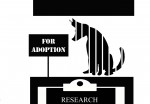As a biochemistry student who has worked in research labs, one of my greatest dilemmas has been whether research conducted on animals is ethical.
It is understandable why scientists test on animals – it’s the closest thing to human trials. But more importantly, scientists can attempt all sorts of experiments that range from benign nutrition tests to more ethically dubious tests, such as euthanasia for organ analysis. After scientists are done using the animals for their experiments, they are typically either euthanized, adopted or placed in animal shelters.
While it’s difficult and unrealistic for the University of California to switch to an animal research-free university, the UC should take steps to illustrate greater transparency to the public concerning how animals are used in research labs. Furthermore, it would be in the UC’s best interests – in terms of perception and ethical consistency – to support issues surrounding expansion of animal rights such as Assembly Bill 147. AB 147 would ensure that California public college research dogs and cats are first offered to an adoption or rescue organization before euthanasia.
Unfortunately, the UC’s evasive tactics and increasingly frivolous concerns toward the bill suggest that they are simply delaying and discrediting the bill.
The bill is very similar to AB 2431, which the University opposed in 2014. The UC expressed disapproval with the older bill on the grounds that there was no exception for experiments requiring the euthanasia of healthy animals and broad language in the bill would interfere with adoption programs run by the University. After the bill was amended to address the UC’s concerns in AB 147 this year, the UC expressed additional issues with broad language in AB 147 that would eliminate direct adoption programs for cats and dogs.
After these additional concerns were addressed, the UC expressed more grievances with the motives of the primary sponsor of the bill, nonprofit organization Beagle Freedom Project, and the potential costs of implementing the bill. Due to those concerns, the UC decided to oppose the bill.
Even though the UC has every right to disapprove of the bill, the University should at least have reasonable concerns. But the University’s concerns are quite frivolous. The UC’s attitude toward potential increases in administrative costs due to additional record requests is quite ridiculous. It’s hard to believe that the University is so cash-strapped that they are unwilling to hire additional staff to handle a potential increase in the number of California Public Record requests. According to an analysis by Chuck Nicol, deputy chief consultant for the state Assembly’s Committee of Appropriations, the cost of compliance with AB 2431 – which was a more broad version of AB 147 – would be “minor and absorbable” for the UC.
Additionally, the UC’s concerns about the motives of Beagle Freedom Project is not a sufficient enough reason to disapprove of the bill. Regardless of Beagle Freedom Project’s attempts to free animals from research laboratories, their motives have no effect on the implementation of the law. Under AB 147, Beagle Freedom Project would be one of the nonprofit organizations that is allowed to facilitate the adoption of research dogs and cats. While Beagle Freedom Project may be a nuisance to the University, they cannot force the UC to change their research policy.
Currently the UC supports research conducted on animals because the scientific advances outweigh the costs, said director of research policy development Jeff Hall. Hall added that animal care and use committees ensure that conditions for animals comply with the UC, state and federal regulations. But while the scientific benefits from animal research are indeed important, a cruel existence for research animals makes the practice unethical. Supporting legislation that improves the lives of the animals being tested is the least the UC can do.
The UC should realize that their actions and statements regarding their animal research policy simply suggest that “the ends justify the means.”

Thank you!
great viewpoint – agree!
An important subject. Thank you for bringing it up!